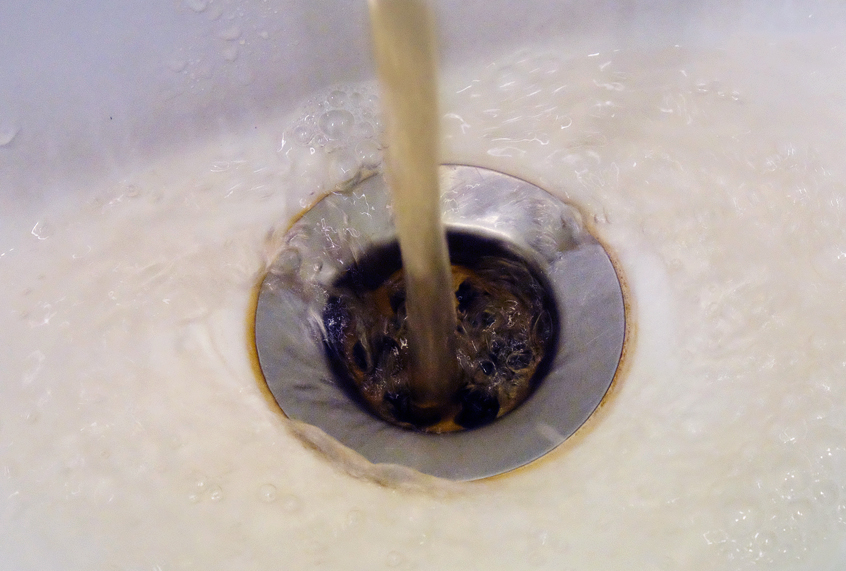The water crisis in Flint, Michigan is not an isolated incident. Hundreds of Kansans in two Wichita-area neighborhoods had been drinking, washing and bathing with contaminated water unknowingly for years, according to the local news outlet the Wichita Eagle. Reportedly, in 2011 the state discovered that dry cleaning chemicals had contaminated groundwater in Haysville, Kansas. Yet it took the Kansas Department of Health and Environment more than six years to act and alert residents in the area.
The investigation in 2011 corresponded with the expansion of a Kwik Shop, the convenient store and gas station chain. While the state found that water had been contaminated by dry cleaning chemicals, it did not test private wells close by nor were residents notified who used surrounding wells so they could test the water themselves. (If Kansans have access to a private well, they aren’t required to use city water, and several neighborhoods in Wichita use well water.)
“We didn’t find out for 7 years,” Joe Hufman told the Wichita Eagle, whose well was contaminated by dry cleaner chemicals at nearly 10 times the allowed level. “Haysville knew it. KDHE knew it. Kwik Shop knew it.”
The dry cleaning chemical perchloroethylene (PCE), also known as tetrachloroethylene, was found at a level in the groundwater that is considered unsafe to drink by the U.S. Environmental Protection Agency. “The Kansas Department of Health and Environment says it initially gave the Haysville site a low priority, assuming the contaminated groundwater was traveling southwest — away from private wells and in a different direction than Cowskin Creek,” the Eagle reported. “It wasn’t until 2017 that KDHE realized groundwater was actually flowing to the southeast: directly along the creek and directly toward a cluster of private drinking wells. For the most part, the underground contamination follows Cowskin Creek, trailing down from a former dry cleaner on West Grand Avenue until past 83rd Street and into the cul-de-sac that Hufman calls home.”
When PCE is consumed, it can have potentially harmful effects from even a short term period of inhalation, including kidney disfunction, irritation to the upper respiratory tract and eyes, and some neurological impairments. When PCE builds up over a long period of time, the effects are even more detrimental, such as serious neurological damages and dysfunction to a person’s kidney, liver, immune system and reproductive system, according to the EPA. The government agency has classified PCE as “likely to be carcinogenic to humans” and potentially associated with cancers like bladder, multiple myeloma or non-Hodgkin’s lymphoma.
“You think they would have notified everybody, taken some precautions until something was done,” Hufman told the Eagle. “Instead, they all kept quiet. They didn’t let anybody know about the contamination, so we all continued to drink the water.”
Last month, the City of Haysville finished connecting 200 homes in the area to the city’s water supply, seven years after traces of contamination were first discovered.
This incident isn’t unprecedented. “It had happened at least once before, at a dry cleaning site near Central and Tyler in Wichita, where the state waited more than four years between discovering contamination nearby and notifying residents of more than 200 homes,” the Eagle reported. “Some fear it could happen again at 22 contaminated sites where the state has not checked for people on well water — or that it could happen at a yet unknown site of contamination.”
These multiple years-long delays derive from a 1995 state law called The Kansas Drycleaner Environmental Response Act, which many see as more protective to the dry cleaner industry than public health. It was “passed at the request of the dry cleaning industry to protect the small businesses from the potentially crippling cost of federal involvement,” the Eagle reported. “The Environmental Protection Agency, through its Superfund program, can pay to clean up water pollution and then bill any and all companies ever associated with the property to recover its money.” But the costs associated with cleaning up pollution can tally in the millions, and the state law limits liability to $5,000 for a dry cleaning shop.
To make up for some of this cost disparity, Kansas passed a tax on dry cleaning chemicals meant to help raise money to investigate and clean up pollution, but it still has not amounted in sufficient enough funding to tackle the problem. Further, the legislation directs the KDHE not to search for contamination from dry cleaners and to “make every reasonable effort” to keep places off the “Superfund” list, which federally deals with hazardous substances.
But the result has left the KDHE stretched thin and often awaiting funding. “Currently, the state is dealing with contamination at 10 sites, while another five are proposed for work this year,” according to the Eagle, and almost a year ago the state had 70 sites on backlog as they waited for funding, with unknown levels of contamination and whether drinking wells were effected. After the situation in Haysville came to light, KHDE has pared these sites down to 22.
“The money that we get is well spent,” Leo Henning, director of environment for KDHE, told the Eagle. “There’s never going to be enough money to do everything at once, so we have to prioritize. I think we’ve done a fairly good job of that. . . Right now our main challenge — and where we’re trying to get to — is making sure there are no Kansans drinking contaminated water.”
It remains unknown. Read the full report at the Wichita Eagle.

